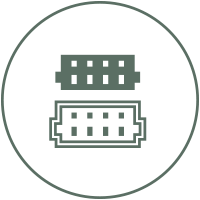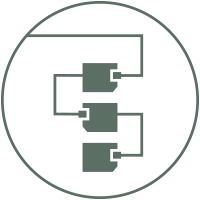Qwiic Kit for Raspberry Pi Hookup Guide
This Tutorial is Retired!
View the updated tutorial: Qwiic Kit for Raspberry Pi V2 Hookup Guide
Qwiic Connect System
SparkFun's Qwiic System is a quick and easy way to connect I2C devices to your microcontroller. Because our Qwiic boards use a 4-pin JSH-SH connector, you don't need to solder. You just need a cable to connect your modules. The connector is polarized meaning you can't plug it in wrong. Additionally, you can daisy chain all your boards together.
 |
| Qwiic Connect System |
I2C is a protocol that has been around for a while, it has a few advantages such as each device being on the same bus but each having a unique address. Messages are sent back and forth with an address and only the device with the correct address listens to the message. This is why we are able to daisy chain our sensors. Currently, a large number of sensors we find communicate over I2C, but what about the ones that don't? Well, some of our Qwiic board use other types of sensors and have a small microcontroller that reads the data and then outputs via I2C, so in other words you can make anything you want to be I2C. One thing to note is that each item on the bus must have its own address. Some sensors will have jumper pads that let you change the address (you usually have 2 or 4 options if this is the case), but not all do. This might make it difficult to have a lot of one sensor in a chain unless you have a dedicated I2C mux.

no soldering
Qwiic cables (4-pin JST) plug easily from development boards to sensors, shields, accessory boards and more, making easy work of setting up a new prototype.

polarized connector
There's no need to worry about accidentally swapping the SDA and SCL wires on your breadboard. The Qwiic connector is polarized so you know you’ll have it wired correctly every time, right from the start.

daisy chain-able
It’s time to leverage the power of the I2C bus! Most Qwiic boards will have two or more connectors on them, allowing multiple devices to be connected.
The Qwiic Connect System is designed to keep your projects moving. If you have I2C sensors that don't have a Qwiic connector on them, check out our Qwiic adapter. You might have to write your own Python library, but at least we've made the connection easier for you.